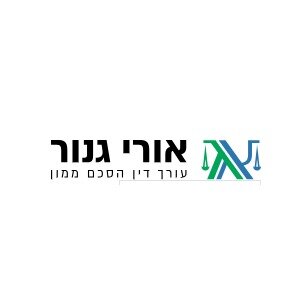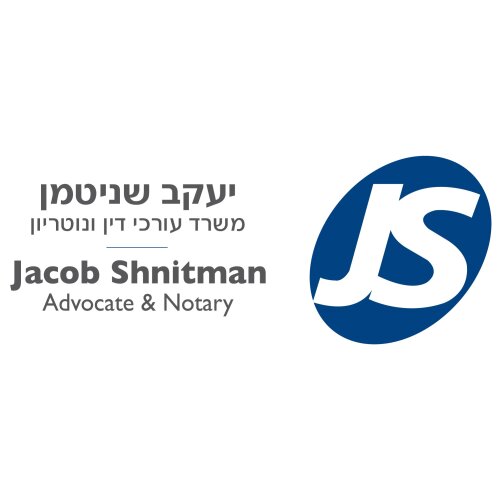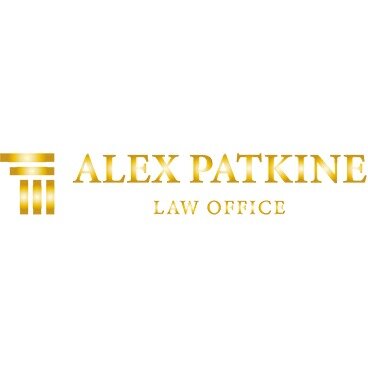Best Mining Law Lawyers in Haifa
Share your needs with us, get contacted by law firms.
Free. Takes 2 min.
List of the best lawyers in Haifa, Israel
About Mining Law in Haifa, Israel
Mining Law in Haifa, Israel, concerns the legal framework regulating the exploration, extraction, and management of mineral resources within the country, particularly in and around the Haifa region. Mining operations may involve accessing resources such as salt, sand, stone, gravel, phosphates, and other minerals found in the area. While Haifa itself is more known for its industrial and port activities, its proximity to important resource locations means mining law is relevant for both businesses and private individuals involved in such activities. Legal guidance is essential to ensure compliance with land use, environmental regulations, and state requirements.
Why You May Need a Lawyer
Anyone involved in or contemplating mining related activities in Haifa may encounter complex legal requirements and should consider professional legal assistance. Common reasons people seek a mining law lawyer include:
- Securing permits for exploration or extraction of minerals.
- Understanding mineral rights versus land ownership rights.
- Negotiating land access agreements with private owners or local authorities.
- Addressing environmental compliance and avoiding regulatory penalties.
- Resolving disputes over mineral ownership or operational boundaries.
- Handling contracts for the sale or transfer of mining rights.
- Defending against legal claims related to property damage, nuisance, or environmental impact.
Given the technical and procedural complexities of mining law in Israel, early consultation with a legal specialist can greatly improve your position and chances of success.
Local Laws Overview
Haifa, being subject to Israeli national laws, adheres to the Israeli Mining Ordinance 1925 and subsequent amendments. The State of Israel owns most of the country's mineral resources, regardless of surface land ownership. The Ministry of Energy through the Geological Survey and the Mining Unit is responsible for the licensing process. Some key aspects include:
- State Ownership: All minerals, except for building materials like sand, are state property. Private landowners rarely own subsurface minerals.
- Licensing: Any person or company wishing to explore or extract minerals must obtain proper licenses from the Ministry of Energy.
- Environmental Protection: Mining activities must be conducted in compliance with national regulations enforced by the Ministry of Environmental Protection to prevent pollution, land degradation, and to rehabilitate sites post extraction.
- Land Use Approval: In some cases, additional approval from local planning and construction authorities in Haifa may be necessary, especially for new or expanded mining sites.
- Community Impact: Operations must consider the impact on nearby communities, including noise, dust, and heavy traffic.
Navigating this legal landscape often requires dealing with multiple government offices, comprehensive documentation, and strict compliance with environmental standards.
Frequently Asked Questions
What is considered a mineral under Israeli law?
Generally, minerals include any naturally occurring substance extracted from the earth, except for petroleum, natural gas, and common building materials like sand, gravel, and stone, which are subject to different regulations.
Who owns the mineral rights in Haifa, Israel?
Almost all mineral rights in Israel belong to the state, even if the land is privately owned. Permission for exploration and extraction requires a state-issued license.
How do I obtain a mining license?
Applications must be submitted to the Ministry of Energy's Mining Unit. The process includes environmental assessments, public notices, and possible local authority approvals.
What environmental requirements must I meet for a mining operation?
You must comply with national and local environmental standards which may require environmental impact assessments, pollution control measures, and land rehabilitation after mining ends.
Can private landowners prevent mining on their property?
Private ownership does not automatically grant mineral rights or veto power, but landowners may have input during the licensing process and can negotiate access terms or compensation.
What happens if there is a dispute over mining rights?
Disputes may be handled through administrative review, negotiation, or, ultimately, litigation in Israel's courts. Legal representation is recommended for complex or high value disagreements.
Are there special rules for mining near populated areas in Haifa?
Yes. Operations near residential, industrial, or ecologically sensitive areas are subject to stricter environmental assessments and public participation in the planning process.
What are the penalties for illegal mining?
Illegal exploration or mining can result in severe penalties, including fines, revocation of licenses, environmental remediation orders, and even criminal liability.
Can foreigners hold mining licenses in Israel?
Yes, but there may be additional requirements, such as local registration, security clearances, or local partnership stipulations, depending on the area's strategic significance.
How are royalties or taxes on mined minerals calculated?
Royalties and taxes are set by Israeli law and are usually payable to the government based on volume or value of extracted materials. Specific rates depend on the material and scale of the operation.
Additional Resources
If you need further information or wish to consult relevant authorities, consider these resources:
- Ministry of Energy - Mining Unit
- Geological Survey of Israel
- Ministry of Environmental Protection
- Haifa Municipal Environmental Department
- Israel Bar Association - Haifa District
- Local legal clinics or university law faculties in Haifa
These organizations can provide guidance about procedures, forms, and the current status of mining applications.
Next Steps
If you are considering a mining venture, facing a dispute, or seeking clarity regarding legal compliance in Haifa:
- Gather all available documents relevant to your situation, such as land registrations, contracts, licenses, and communications with authorities.
- Make a list of your specific questions or concerns.
- Contact a qualified local mining law attorney who is knowledgeable about Haifa and Israeli regulations.
- Consider an initial legal consultation to understand your rights, obligations, and any possible risks.
- If you need to submit applications to government bodies, begin preparing the required information and environmental assessments early, as these processes may be time consuming.
Timely legal advice is crucial to ensure your mining activities are both legally compliant and commercially viable. Start by reaching out to a reputable local law firm or a relevant governmental office for the latest procedures and requirements.
Lawzana helps you find the best lawyers and law firms in Haifa through a curated and pre-screened list of qualified legal professionals. Our platform offers rankings and detailed profiles of attorneys and law firms, allowing you to compare based on practice areas, including Mining Law, experience, and client feedback.
Each profile includes a description of the firm's areas of practice, client reviews, team members and partners, year of establishment, spoken languages, office locations, contact information, social media presence, and any published articles or resources. Most firms on our platform speak English and are experienced in both local and international legal matters.
Get a quote from top-rated law firms in Haifa, Israel — quickly, securely, and without unnecessary hassle.
Disclaimer:
The information provided on this page is for general informational purposes only and does not constitute legal advice. While we strive to ensure the accuracy and relevance of the content, legal information may change over time, and interpretations of the law can vary. You should always consult with a qualified legal professional for advice specific to your situation.
We disclaim all liability for actions taken or not taken based on the content of this page. If you believe any information is incorrect or outdated, please contact us, and we will review and update it where appropriate.















